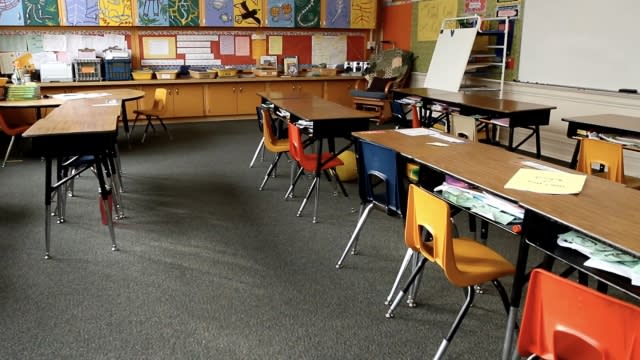Fight for more parental leave for teachers intensifies

The fight over paid parental leave is not new in the United States, but it is not expected to get addressed nationally until after the election at the earliest. That means the debate is happening more at the state level, especially when it comes to teachers.
Let's start with the data.
According to the National Council on Teacher Quality and their 2022 survey of the country's 148 largest school districts, only about 18% offered some form of parental leave.
For many teachers, that means planning to have a child means figuring out when summer break is or accruing enough sick time to take a significant amount of time off.
Shannon Holston is the chief of policy and programs at the National Council on Teacher Quality and says the lack of a comprehensive paid family policy is an issue nationally, but it's especially an issue in the teaching profession, where recruiting teachers and keeping them is a challenge.
"Teachers now largely rely on unpaid leave," Holston said. "Paid parental leave helps districts keep great teachers in the classroom."
California is currently at the center of the debate, where educators are excluded from any fully paid parental leave. California's Democratic Gov. Gavin Newsom vetoed legislation to change that in 2019, citing cost issues. Money is largely the main reason legislation for teachers' parental leave hasn't passed in more states.
Holston says if organizers can convince California to pass this legislation, it could inspire more states and school districts to do the same.
A bill advanced in the California State Capitol last month, but it is still far from law.
"The International Labor Organization actually recommends 18 weeks of parental leave. We are far from that for teachers," Holston added.
The movement is gaining steam in other parts of the country, however. Chicago began offering paid parental leave to teachers this year.
As a sign of how this isn't your typical Democrat versus Republican issue, Tennessee, South Carolina and other conservative states like Arkansas have passed some form of paid leave for teachers in recent years.
Holston expects the issue to become an even bigger one when local teachers unions negotiate new contracts. That's happening in Cleveland, Ohio presently.
SEE MORE: Should teachers be armed? The Tennessee Senate says yes
